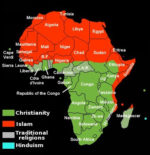By: John Woodward on June 21, 2017
What had I gotten myself into? I must have been crazy to think I could do a doctoral program. What was I thinking? Now two years into the program, I am actually within reach of a doctorate degree. How was it even possible to achieve this longed held dreamed?
By: Dave Young on June 21, 2017
I brought a frustrating issue into the program that surfaced early and almost derailed me. My starting perspective was “this program is great – it will push me to grow professionally!” Like most mid-career pastors, I had lost ministry passion and focus. However, from the beginning of the program, I was asked about what I…
By: Phillip Struckmeyer on June 21, 2017
Seeing, Hearing, and Conceiving 9 That is what the Scriptures mean when they say, “No eye has seen, no ear has heard, and no mind has imagined what God has prepared for those who love him.”[d] 10 But[e] it was to us that God revealed these things by his Spirit. For his Spirit searches out everything and shows us God’s deep…
By: Nick Martineau on June 21, 2017
I knew that starting the LGP program would be life changing but I didn’t really know what to expect. I knew going back to school meant reading more books, writing papers, and having teachers issue grades. However, I was surprised to find out just how personable and accessible all the advisors and lead mentor have…
By: Jon Spellman on June 21, 2017
“Big fish, little pond” is the phrase that comes to mind as I reflect on this first year’s learning alongside my cohort. At the risk of sounding like I have an overactive ego or hyper sized sense of self-importance, due to the environments I’ve always placed myself in, I’ve grown accustomed to being the smartest…
By: Travis Biglow on June 21, 2017
Year-in-Review Story The first real surprise that I had was being able to attend George Fox. Up to the last minute I did not know whether it was going to happen. My wife kept showing me pictures of South Africa and I really did not want to be disappointed if I was not able to…
By: Claire Appiah on June 20, 2017
Mark Mathabane—Kaffir Boy an Autobiography: The True Story of a Black Youth’s Coming of Age in Apartheid South Africa Introduction In this raw and captivating autobiography, Mark Mathabane, utilizes the imaginative creativity of his journalistic skills to depict the poignancy and triumphs of his first eighteen years of life under South Africa’s apartheid system. He…
By: Chip Stapleton on June 16, 2017
I read our assigned reading for this week, Christianity and African Traditions by Matthew Michael, with quite a bit of interest. The church I currently serve is about 50% Cameroonian, and as such, I often – on a weekly, sometimes even daily basis – see and try to account for and understand the intersection of our…
By: Geoff Lee on June 16, 2017
Following on from our earlier considerations of contextual theology and folk theology, this book looks at how to marry classic Christian theology in the Judeo-Christian tradition with specific African traditions and culture. Dr. Matthew Michael carries out a sweeping review of various systematic theological categories and considers how they fit in with and can be…
By: Kristin Hamilton on June 16, 2017
Whenever I read a book that analyzes another culture, especially one written by someone who has personal knowledge and understanding of that culture as well as a research knowledge, I know I am at a disadvantage from the start. Such is the case with Christian Theology and African Traditions by Matthew Michael. As Michael works…
By: Christal Jenkins Tanks on June 15, 2017
“Christianity has “a prefabricated theology, a book theology . . . what she reads in books written by European theologians. . .” and “what she is told by Europeans is accepted uncritically and given out undigested in preaching or teaching.”Similarly, the theological discourse of those times is characterized by unhealthy reactionary to Western misrepresentations of…
By: Stu Cocanougher on June 15, 2017
 When we think of traditional missions, we think of missionaries trekking jungles, mountains, and deserts in search of tribal people who have never heard the name of Jesus. Alternately, we may think of missionaries who share the good news with Muslims, Hindus, Buddhists, or Communists. Yet, there are some areas in today’s…
When we think of traditional missions, we think of missionaries trekking jungles, mountains, and deserts in search of tribal people who have never heard the name of Jesus. Alternately, we may think of missionaries who share the good news with Muslims, Hindus, Buddhists, or Communists. Yet, there are some areas in today’s…
By: Aaron Cole on June 15, 2017
Summary: Kaffir Boy, The True Story of a Black Youth’s Coming of Age in Apartheid South Africa, by Mark Mathabane is a sobering look at what it meant to grow up as a black male in the 1960’s and the 1970’s in abject poverty of Alexandria, South Africa during the Apartheid. Mathabane’s autobiography takes the…
By: Lynda Gittens on June 15, 2017
Christology Theology and African Tradition Christian Theology: Synonymous with the African individuals Must connect with human setting to stay important Isolate humankind detaches God Be theocentric and in addition human-centric Must connect with the perspectives of the African individuals (convictions, values and customary introductions) Be loyal to the Scriptures no reverberate of contemporary ideological ramblings…
By: Jennifer Dean-Hill on June 15, 2017
Throughout the pages of Matthew Michael’s book, “Christian Theology and African Traditions”, I was reminded of the many discussions of contextual theology and the words of Paul: “I have become all things to all people so that by all possible means I might save some” (I Cor. 9:22). What a beautiful reminder of our responsibility in…
By: Jim Sabella on June 15, 2017
In recent weeks the members of our cohort have read two books about Africa’s influence on Christianity. In the first book, Oden argues for Africa’s role in shaping present Christian thought. In this week’s reading Michael argues for an African theology that not only has the potential to inform the African church but also the…
By: Mary Walker on June 14, 2017
“The contention of this work is that Christian theology should encourage taking on the positive elements of the African traditions and positioning these elements in dialogue with the teaching of the scriptures.”[1] In his book, Christian Theology & African Traditions, Matthew Michael seeks to transform the African mind and its worldview and traditions to be…
By: Katy Drage Lines on June 11, 2017
When Kip and I moved to Kenya to work among the Turkana, we spent our first 12 months living in the remote village of Kangarisae, learning the language and culture of Turkana. It was in that little village where we first built relationships—with our language helper, the church leaders, and the elders—men and women—in the…
By: Kevin Norwood on June 9, 2017
What is the point of evangelism? Is it the salvation of the person that is being reached with the good news? When organizations send missionaries into all the parts of the world one of their goals is to evangelize those who have never heard the gospel message of the good news. They go through cultural…
By: Stu Cocanougher on June 9, 2017
 This September I will travel to Cape Town, South Africa for the second of three “on location” intensives with Portland Seminary. In preparation for this, I have been asked to read the book The Rise and Fall of Apartheid by David Welsh.1 This book is highly detailed, as it should be. The historical foundations for…
This September I will travel to Cape Town, South Africa for the second of three “on location” intensives with Portland Seminary. In preparation for this, I have been asked to read the book The Rise and Fall of Apartheid by David Welsh.1 This book is highly detailed, as it should be. The historical foundations for…
 When we think of traditional missions, we think of missionaries trekking jungles, mountains, and deserts in search of tribal people who have never heard the name of Jesus. Alternately, we may think of missionaries who share the good news with Muslims, Hindus, Buddhists, or Communists. Yet, there are some areas in today’s…
When we think of traditional missions, we think of missionaries trekking jungles, mountains, and deserts in search of tribal people who have never heard the name of Jesus. Alternately, we may think of missionaries who share the good news with Muslims, Hindus, Buddhists, or Communists. Yet, there are some areas in today’s…
 This September I will travel to Cape Town, South Africa for the second of three “on location” intensives with Portland Seminary. In preparation for this, I have been asked to read the book The Rise and Fall of Apartheid by David Welsh.1 This book is highly detailed, as it should be. The historical foundations for…
This September I will travel to Cape Town, South Africa for the second of three “on location” intensives with Portland Seminary. In preparation for this, I have been asked to read the book The Rise and Fall of Apartheid by David Welsh.1 This book is highly detailed, as it should be. The historical foundations for…